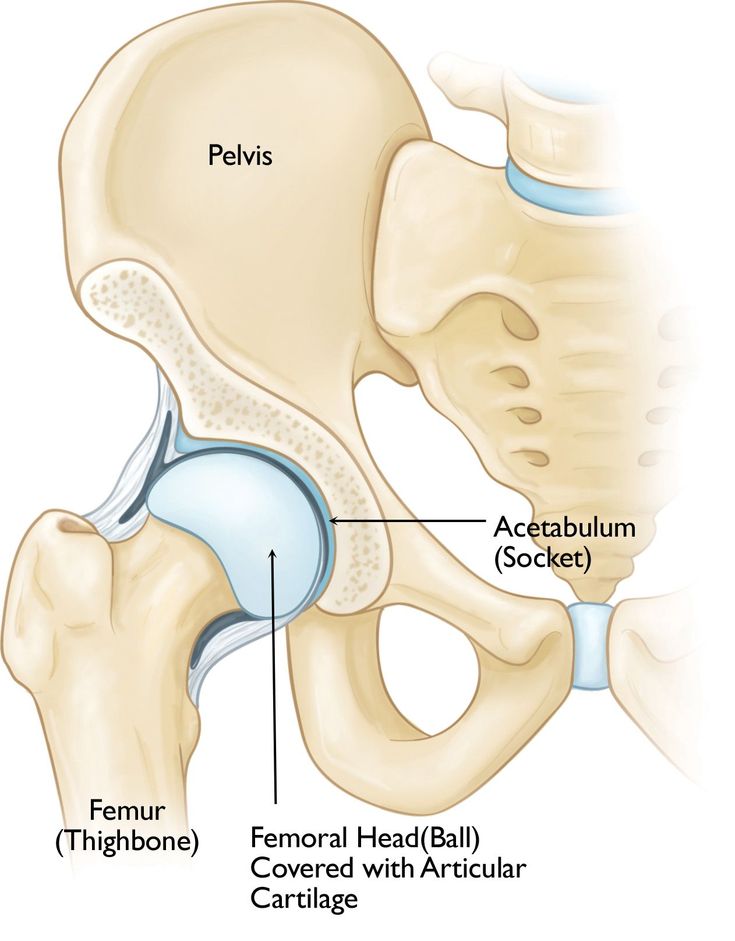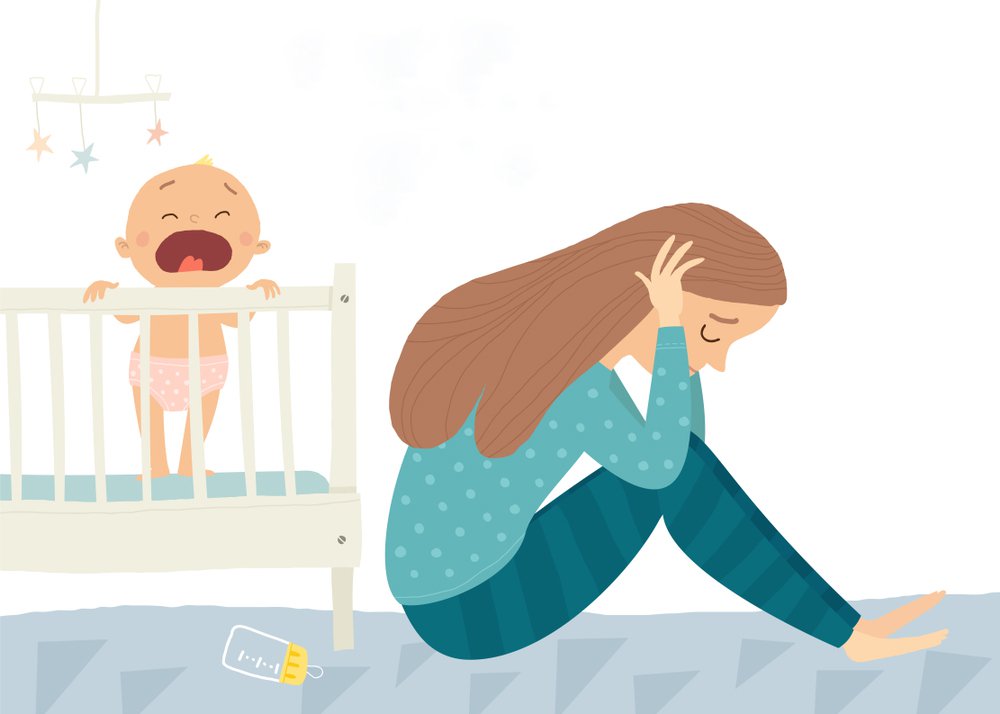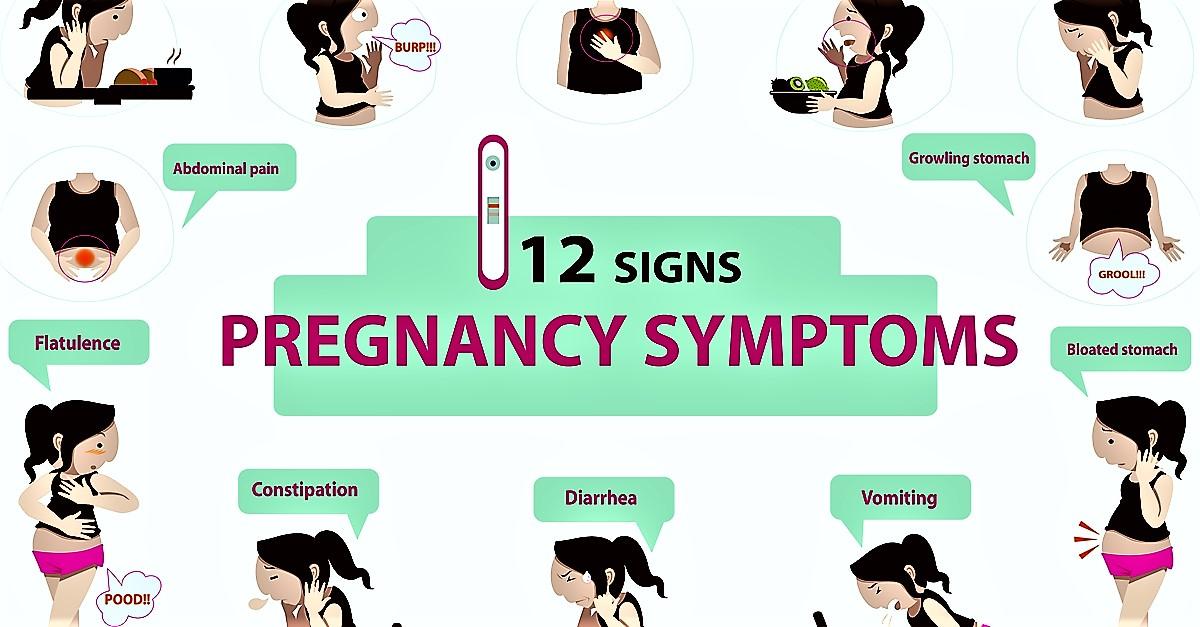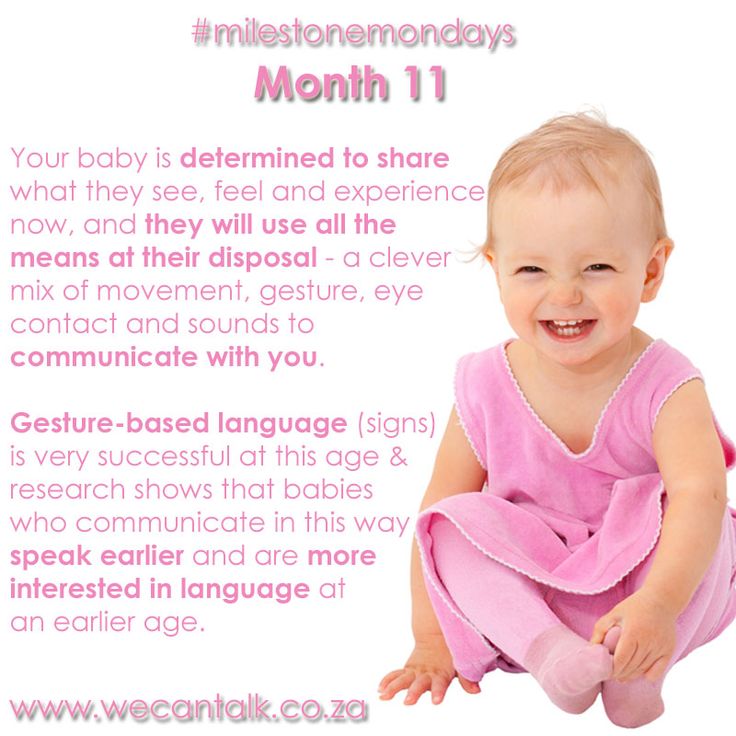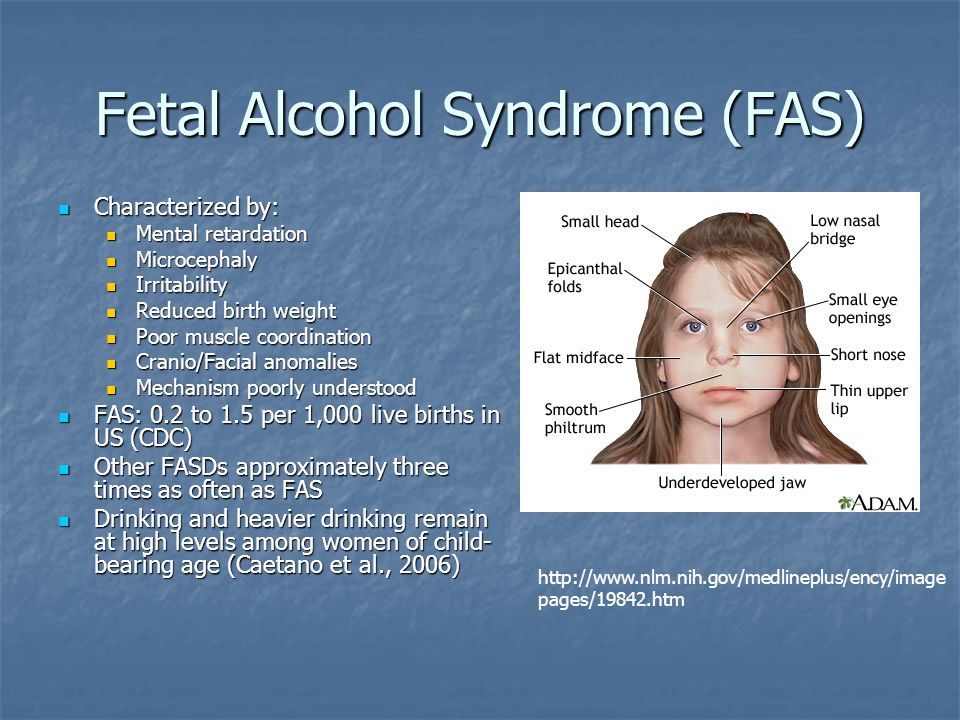What age do babies start sucking their thumb
A Pediatrician's Guide to Thumb-Sucking: What to Know
How Do You Tell If a Baby Is Hungry or Wants Comfort?
By Carisse Armada • 03 Oct, 2022
Firstly, babies don't have many ways to tell what they need. It doesn't matter if the child is hungry, hurt, or lonely and needs comfort; he doesn't know what time is, so all of these things are just as important to him now. So, when your baby needs something, they open their mouth and make the only sound they can communicate with, crying. So, until your child learns other ways to communicate when your baby sucks on their hands or cries, you want to understand their actions to meet their needs better. We know that a crying baby prompts the parents to act in ways to display comfort, prepare for feeding, or check the baby's wellbeing. Distinguishing if you have a hungry baby or just a baby that wants you to comfort them can be challenging, especially for new parents. How Do You Tell If a Baby Is Eating or Comfort Nursing? It will be beneficial to learn to differentiate between your baby needing to eat for comfort or hunger. For parents, you never want to feel like you're not meeting your baby's needs, so it's natural to want to nurse or bottle feed them to soothe their cries. Still, there are ways to tell if the baby is actually hungry or wants to suck on the breast nipple or bottle nipple for comfort. Further, your baby will communicate his hunger or need for comfort to you in various ways, from subtly hinting to making immediate demands. Cues That Tell the Baby Is Hungry How do you tell if your baby is hungry? To better illustrate, be mindful of these cues: baby sucking on hand or fists turn their head toward your breast Calm and wide-eyed after a nap Rooting with a strong, nutritive suck Continuous crying after comforting them with cradling, rocking, or a diaper change (this is a late hunger cue) Opens and closes mouth When your baby is hungry, you need to respond to their cues.
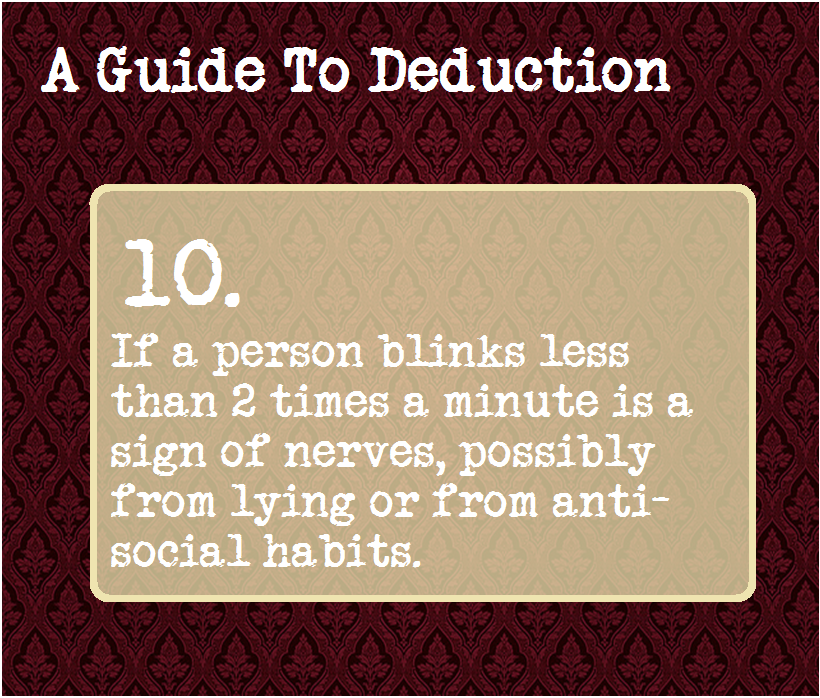 Stretching, becoming more active, and putting their hand to their mouth are all familiar mid cues or signs that tell they are hungry. Babies will make extreme efforts to let you know they are hungry if these mid-cues don't result in a nursing session. They will scream and cry. Babies will move their arms and legs all over the place. Their faces will turn red with frustration. These are signs that it's too late to feed; by this time, the baby is usually too upset to focus on eating. So, you'll have to calm them down as you administer food to them. You can help keep feedings calm and effective as soon as you see signs that your newborn or infant is hungry. It's much easier for a baby to focus on eating enough when they aren't using all their energy to show how they feel. Signs That Your Baby Wants to Nurse for Comfort One method to feed your baby and provide the nutrients they need to thrive is breastfeeding.
Stretching, becoming more active, and putting their hand to their mouth are all familiar mid cues or signs that tell they are hungry. Babies will make extreme efforts to let you know they are hungry if these mid-cues don't result in a nursing session. They will scream and cry. Babies will move their arms and legs all over the place. Their faces will turn red with frustration. These are signs that it's too late to feed; by this time, the baby is usually too upset to focus on eating. So, you'll have to calm them down as you administer food to them. You can help keep feedings calm and effective as soon as you see signs that your newborn or infant is hungry. It's much easier for a baby to focus on eating enough when they aren't using all their energy to show how they feel. Signs That Your Baby Wants to Nurse for Comfort One method to feed your baby and provide the nutrients they need to thrive is breastfeeding. Still, frequently, the breastfeeding relationship goes beyond serving as a mealtime. Nursing can be a ritual that feels calming and safe to babies. The special connection between the mother and child soothes the baby and mother by the release of oxytocin also known as the “love hormone”. Of course, babies sometimes just want to feel as close to their parents and won't reach for the breast because they are hungry. This is frequently referred to as comfort nursing or breastfeeding for comfort. You can easily get into this habit, especially if you aren't sure if your baby is eating or just nursing or if you just want to comfort your baby quickly. Your baby is only nursing for comfort nursing when you see these signs: Flutter sucking, slowing down, stop sucking, or making little sucks.
Still, frequently, the breastfeeding relationship goes beyond serving as a mealtime. Nursing can be a ritual that feels calming and safe to babies. The special connection between the mother and child soothes the baby and mother by the release of oxytocin also known as the “love hormone”. Of course, babies sometimes just want to feel as close to their parents and won't reach for the breast because they are hungry. This is frequently referred to as comfort nursing or breastfeeding for comfort. You can easily get into this habit, especially if you aren't sure if your baby is eating or just nursing or if you just want to comfort your baby quickly. Your baby is only nursing for comfort nursing when you see these signs: Flutter sucking, slowing down, stop sucking, or making little sucks.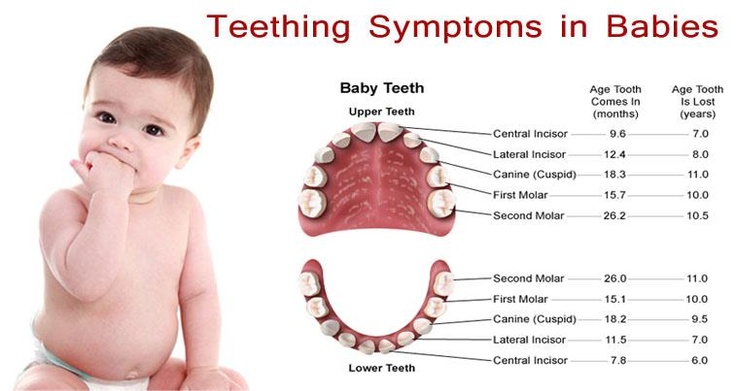 Still and looking into space while nursing Holding the nipple in their mouth but not sucking for milk Rooting and sucking lightly at the breast Arching and grabbing ears At the end of a wake window, sucking hands or fists Eyebrows arched/eyes rubbed Crying could mean that they're too tired. Other Ways to Satisfy Babies Who Only Want Comfort If you think your infant or newborn is just nursing for comfort, there are other ways to make them feel better.
Still and looking into space while nursing Holding the nipple in their mouth but not sucking for milk Rooting and sucking lightly at the breast Arching and grabbing ears At the end of a wake window, sucking hands or fists Eyebrows arched/eyes rubbed Crying could mean that they're too tired. Other Ways to Satisfy Babies Who Only Want Comfort If you think your infant or newborn is just nursing for comfort, there are other ways to make them feel better. Swaddling is a way to hold a baby that feels like nursing. If your baby wants to chew, give them a pacifier. Making them rock Cuddling the baby Nonetheless, if you're worried they'll stop breastfeeding because they use a pacifier, a study found no indication that this is the case. In fact, pacifiers are linked to reduction in Sudden Infant Death Syndrome (SIDS) Try different things, and you'll find out what your baby likes best. How to Know When Your Baby Is Full When some parents ignore a baby's hunger cues because they think the baby is just looking for comfort.
Swaddling is a way to hold a baby that feels like nursing. If your baby wants to chew, give them a pacifier. Making them rock Cuddling the baby Nonetheless, if you're worried they'll stop breastfeeding because they use a pacifier, a study found no indication that this is the case. In fact, pacifiers are linked to reduction in Sudden Infant Death Syndrome (SIDS) Try different things, and you'll find out what your baby likes best. How to Know When Your Baby Is Full When some parents ignore a baby's hunger cues because they think the baby is just looking for comfort. The little one might not get the needed milk! Learning the signs if your newborn is fully fed is to know if you are nursing a hungry baby or one that only needs to feel better. It's important to let your baby nurse until they are completely fed. You should be aware of these signs that say they are already full: The baby lets go of your breast or "falls off." The baby moves away from your mouth. The baby lets its body loosen up and opens its hands. Further, if your baby finishes eating from one breast and seems full, burp your baby and change their diaper (if needed), then offer the other breast.
The little one might not get the needed milk! Learning the signs if your newborn is fully fed is to know if you are nursing a hungry baby or one that only needs to feel better. It's important to let your baby nurse until they are completely fed. You should be aware of these signs that say they are already full: The baby lets go of your breast or "falls off." The baby moves away from your mouth. The baby lets its body loosen up and opens its hands. Further, if your baby finishes eating from one breast and seems full, burp your baby and change their diaper (if needed), then offer the other breast. If your baby doesn't seem interested or doesn't want to latch on, he may not be hungry anymore. Some babies may eat from both sides at each feeding, while others may only feed from one side. Seek your Pediatrician's advice Get in touch with Sang Pediatrics right away to obtain additional parenting tips on effective ways to care for your baby. You can also subscribe to our blog . We provide the best pediatric care in Fresno, California . Contact us at (559) 268-1737 or make an appointment online.
If your baby doesn't seem interested or doesn't want to latch on, he may not be hungry anymore. Some babies may eat from both sides at each feeding, while others may only feed from one side. Seek your Pediatrician's advice Get in touch with Sang Pediatrics right away to obtain additional parenting tips on effective ways to care for your baby. You can also subscribe to our blog . We provide the best pediatric care in Fresno, California . Contact us at (559) 268-1737 or make an appointment online.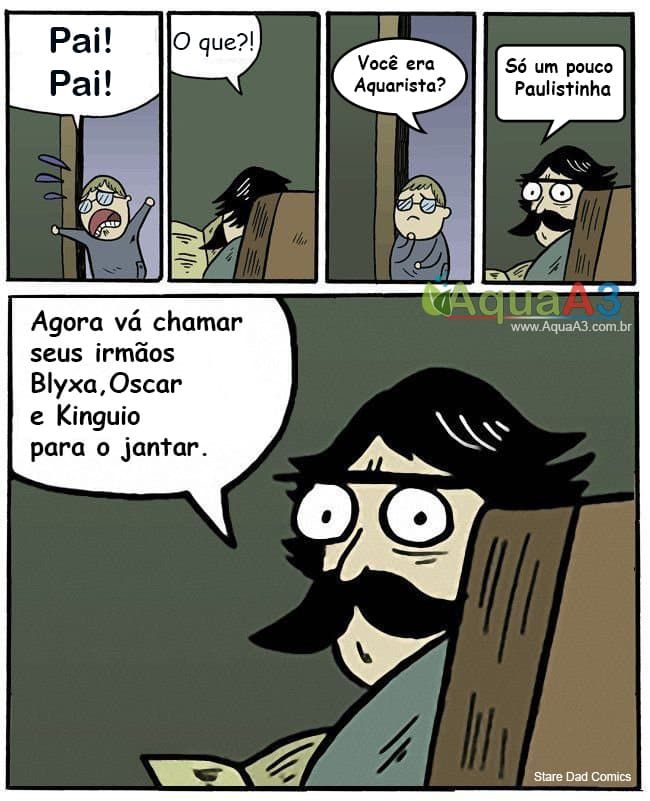
When do babies start sucking their thumb?
Where is Thumbkin? Chances are babies have their adorable little thumbs in their mouths well before their grown-ups even start singing this popular nursery rhyme with them. In fact, doctors confirm that it’s not uncommon to see ultrasound images of hand- and thumb-sucking fetuses in utero.
“Babies start sucking their thumbs early on in life,” says Dr. Whitney Casares, Stanford-trained private practice pediatrician in Portland, Oregon and author of “The Working Mom Blueprint: Winning at Parenting Without Losing Yourself.” “About 90% of newborns,” she says, “show some kind of hand-sucking behavior by two hours after they are born.”
“Babies start sucking their thumbs early on in life. About 90% of newborns show some kind of hand-sucking behavior by two hours after they are born.”
— DR. WHITNEY CASARES, PEDIATRICIAN AND AUTHOR
Why? “All babies are born needing to know how to suck using their mouth and tongue,” explains Dr.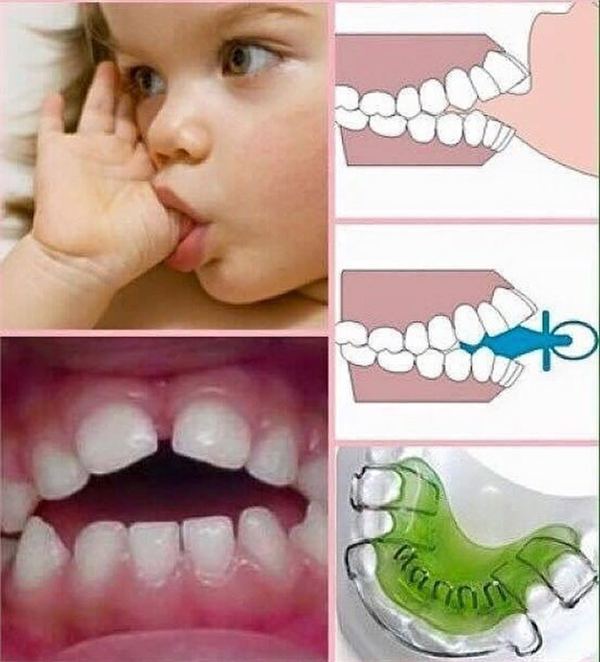 Sara Siddiqui, pediatrician and clinical assistant professor in the Department of Pediatrics at NYU Langone’s Hassenfeld Children’s Hospital in New York, noting that thumb sucking can be related to the natural reflex to feed. “Thumb sucking can begin in infancy — or prior — and continue well into toddler age.”
Sara Siddiqui, pediatrician and clinical assistant professor in the Department of Pediatrics at NYU Langone’s Hassenfeld Children’s Hospital in New York, noting that thumb sucking can be related to the natural reflex to feed. “Thumb sucking can begin in infancy — or prior — and continue well into toddler age.”
While there is no one-size-fits-all answer to the whens and whys of thumb sucking, pediatricians do agree that thumb sucking is an absolutely normal habit for many babies and young children.
When do babies start sucking their thumb?
“Babies can find the thumb with relative ease especially in the early infant period,” Siddiqui explains. From early hand-sucking in utero to months later when babies start to clasp their hands and bring them to the mouth area at around 4 months, there is no one moment or exact range when thumb sucking may begin. Siddiqui does note, though, that it is uncommon for babies to start sucking their thumb after 6 or 7 months of age.
“Thumb sucking can begin in infancy — or prior — and continue well into toddler age.
— DR. SARA SIDDIQUI, PEDIATRICIAN”
Amy Kravetz, mom of two from Princeton, New Jersey, says that she doesn’t remember exactly when her now almost 2-year-old started but that her daughter has sucked her thumb since she was an infant. “Pretty early on, she started sucking her thumb to self-soothe — I was thrilled!” says Kravetz. “She still sucks it for comfort and when she’s tired. It hasn’t been a problem for us yet. She’s been to the dentist, who didn’t say we had to worry about her teeth. For now, I’m glad she has a way to help herself when she is upset.”
Why do babies suck their thumb?
Like Kravetz, most parents and pediatricians correlate thumb sucking with sleep, comfort and self-soothing. “Many babies suck their thumbs as a soothing mechanism when they are tired or hungry, but some suck just as a reflex,” explains Casares, noting that 80% of infants and children suck their thumbs at some point.
Siddiqui agrees that thumb sucking is often a self-soothing technique that helps babies calm down when they are nervous or upset. “As the nervous system is developing, much sensory input is received in the mouth and tongue area, which can be soothed in babies by sucking,” she adds. She does note, though, that when infants and babies suck their thumbs when hungry, they stop when they realize they aren’t getting fed.
“As the nervous system is developing, much sensory input is received in the mouth and tongue area, which can be soothed in babies by sucking,” she adds. She does note, though, that when infants and babies suck their thumbs when hungry, they stop when they realize they aren’t getting fed.
That said, every baby and every thumb-sucking variation is different. Some might choose one thumb over the other. Some, as Siddiqui explains, might suck on the rest or some of the other fingers, as well. When the teething process begins, some little ones might begin placing their fingers and thumbs in their mouths for comfort although Siddiqui notes a difference between sucking one’s thumb to self soothe and simply placing fingers in the mouth to chew or try to massage the gums.
For Seth Canetti, dad of two from Lancaster, Pennsylvania, his son’s thumb-sucking habit began at 2 1/2, shortly after his baby sister was born. “We thought it was a phase that would pass once he got used to her, but 15 months later, he’s only just now starting to gradually suck his thumb less,” says Canetti. “On the bright side, he does sleep way better!”
“On the bright side, he does sleep way better!”
Should parents worry if their babies do — or don’t — suck their thumb?
In general, Casares says thumb sucking isn’t a cause for concern, especially before the front teeth start to erupt from the gum line, and that most children stop sucking their thumbs without outside intervention between 2 and 4 years old. She does note that if you are noticing infections, calluses or sore thumbs — or if you suspect thumb sucking might be causing bite problems or protruding teeth — you should consult the child’s pediatrician and/or dentist.
Of course, not every child will naturally stop thumb sucking within this precise age range — and a large group of kids continue to suck their thumbs beyond 4 years old. “It’s definitely true that these kids can still grow out of this behavior,” adds Casares.
But what if your child’s prolonged thumb sucking still has you worried? “My advice would be to check in with your pediatrician,” advises Casares. She says a doctor might help pinpoint other factors, such as stress or sensory-seeking behavior, that might be prolonging the habit. Siddiqui also mentions difficulty sleeping as another possibly contributing factor.
She says a doctor might help pinpoint other factors, such as stress or sensory-seeking behavior, that might be prolonging the habit. Siddiqui also mentions difficulty sleeping as another possibly contributing factor.
Shira Newman, an Ardsley, New York mom of two elementary-school-age children, says both of her sons started sucking their thumbs at 10 weeks old. “During infancy, they both sucked their thumbs very often, typically when tired and falling asleep, as well as while sleeping,” she says. Her older son eventually outgrew the habit, but her younger son still sucks his thumb when tired or needing comfort — but not at school or in public. “As a former thumb sucker myself, I don’t see a problem with this self-soothing habit. I know my kids will outgrow it in their own time.”
“As a former thumb sucker myself, I don’t see a problem with this self-soothing habit. I know my kids will outgrow it in their own time.”
— SHIRA NEWMAN, MOM OF TWO
“Every baby follows their own trajectory when it comes to development and behavior, especially when it comes to self-soothing,” explains Casares, who notes that thumb sucking is not a developmental milestone and should never be forced.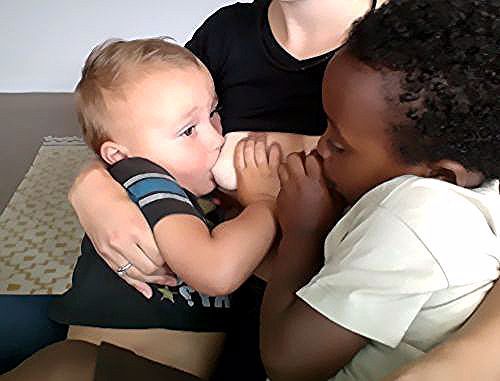 “All children are different and find unique ways to soothe themselves. There’s nothing to worry about if your child is not a thumb sucker, though.”
“All children are different and find unique ways to soothe themselves. There’s nothing to worry about if your child is not a thumb sucker, though.”
She also notes that some experts suggest offering, but never forcing, a pacifier to baby thumb suckers (following this guidance from the American Academy of Pediatrics) for a variety of reasons — from studies that show it can help reduce the risk of Sudden Infant Death Syndrome (SIDS) to pacifiers being easier to clean and somewhat softer than fingers.
Babies and thumb sucking simply go hand in hand. But, as with any self-soothing method, it can become a hard habit to eventually break.
“Similar to other habits like taking the bottle or pacifier, it is harder to stop the [thumb sucking] habit as the baby grows older and more dependent on the habit,” explains Siddiqui. “It is helpful if the baby uses multiple modalities to help to self-soothe to avoid one thing becoming a prolonged habit.” One way to do this, advises Siddiqui: “I always encourage parents to accentuate and encourage the positive behaviors and try to ignore [others] in order to diminish behaviors that need to be reduced. ”
”
“I always encourage parents to accentuate and encourage the positive behaviors and try to ignore [others] in order to diminish behaviors that need to be reduced.”
— DR. SARA SIDDIQUI
And both she and Casares give a thumbs up to parents for discussing any and all issues about the growth and development of their little ones with their pediatrician or health care provider.
Thumb sucking
Parental GuidelinesChildren may suck on their thumb to calm themselves, but this habit can have a negative effect on oral tissue formation and tooth position. Sucking is one of the natural reflexes of an infant. Babies and young children suck on fingers, nipples, and other objects as it gives them a sense of security, joy, and helps them explore the world. Thumb sucking is one of the most common behavioral responses in children. Generally speaking, you don't have to worry until your front teeth start to erupt. If finger sucking does not stop by this time, the anterior teeth may shift and form a malocclusion. Prolonged sucking may change the shape of the hard palate and cause speech problems, such as impaired pronunciation of sounds, lisping. Most children stop sucking their fingers on their own. Children over the age of 5 who have not stopped the habit may need medical attention. The doctor assesses whether such behavior is the result of stress or trauma, or other emotional disturbances. Prolonged sucking problemsIf the habit of thumb sucking persists until the permanent teeth erupt, it can lead to deformities of the maxillofacial region and the position of individual teeth. Children who simply passively hold their fingers in their mouths are less likely to develop deformities than children who actively suck their thumbs. The difference can be understood if you pull your finger out of the child's mouth. If active sucking occurs, then a specific clicking sound is heard when the finger is removed. Some aggressive suckling babies may even have problems with their temporary teeth. Check with your dentist if you notice changes in the position or size of your child's baby teeth. When should you stop thumb sucking? Children should stop thumb sucking by the time the permanent teeth begin to erupt. Children usually stop on their own between the ages of 2 and 4 years. Often the habit fades gradually as children spend more time awake and learning about the world around them. Nipple sucking is no less of a bad habit than thumb sucking, but nipple sucking is easier for children to break. How to wean a child from a bad habit?Excessive pressure on a child can do more harm than good. The child needs to be helped to get rid of the habit, not scolded!
How can a parent help a child get rid of this habit?Distract. Remind. Encourage. Be patient, talk to the child openly, calmly, explain why this habit has become harmful. A friendly reminder is useful for children who are already ready to kick the habit. Distract your baby by offering other comfortable suckling items, such as toys or even a pacifier. Soothers cause less damage to the maxillofacial tissues than thumb sucking. Start with small progress and encourage your child every day he doesn't suck his thumbs. |
Reasons why a child sucks his thumb
From the moment a child is born until he becomes an adult, the life of his parents is a continuous series of exciting happy events and experiences. They first deal with an adorable baby who mostly sleeps and eats. But the baby is growing, and he has certain features. One of the most common childhood habits is perhaps the most incomprehensible to moms and dads: almost all babies suck their thumbs. Why? Let's figure it out.
They first deal with an adorable baby who mostly sleeps and eats. But the baby is growing, and he has certain features. One of the most common childhood habits is perhaps the most incomprehensible to moms and dads: almost all babies suck their thumbs. Why? Let's figure it out.
Causes of the thumb sucking habit
According to the information provided on the NEN Parent Community website, thumb sucking is an absolutely natural activity for a baby. Until a certain age, sucking movements are directly associated with the process of breastfeeding or bottle feeding. By making such movements, the child shows that he is hungry. When a baby begins to explore the world around him, sucking his thumb makes him feel safe. In toddlers, some babies continue to suck on their thumb to calm down or fall asleep faster.
Impact of thumb sucking on tooth development
The main concern of parents is whether this habit will continue in the child when permanent teeth begin to appear. Thumb sucking can affect a baby's oral development, tooth alignment, and palate formation. However, everything here depends mainly on how actively and often the child sucks his thumb. If the baby just sometimes holds his finger in his mouth, the likelihood of dental problems is much lower than if the child constantly sucks his finger intensively, with considerable effort.
Thumb sucking can affect a baby's oral development, tooth alignment, and palate formation. However, everything here depends mainly on how actively and often the child sucks his thumb. If the baby just sometimes holds his finger in his mouth, the likelihood of dental problems is much lower than if the child constantly sucks his finger intensively, with considerable effort.
Should I be worried?
Dentists advise parents to listen to the sound that occurs when the baby takes his finger out of his mouth. Specific cotton indicates that the child sucks his thumb too intensively. You hear a similar but quieter sound when you take a pacifier out of your baby's mouth. It should be noted that pacifier sucking can have the same effects as thumb sucking, but to a lesser extent, as pacifier babies tend to suck less aggressively. Many children themselves give up the habit of sucking their thumbs between the ages of two and four.
How to wean a child from sucking his thumb
If the child continues to suck his thumb, do not rush to start an uncompromising struggle with this habit.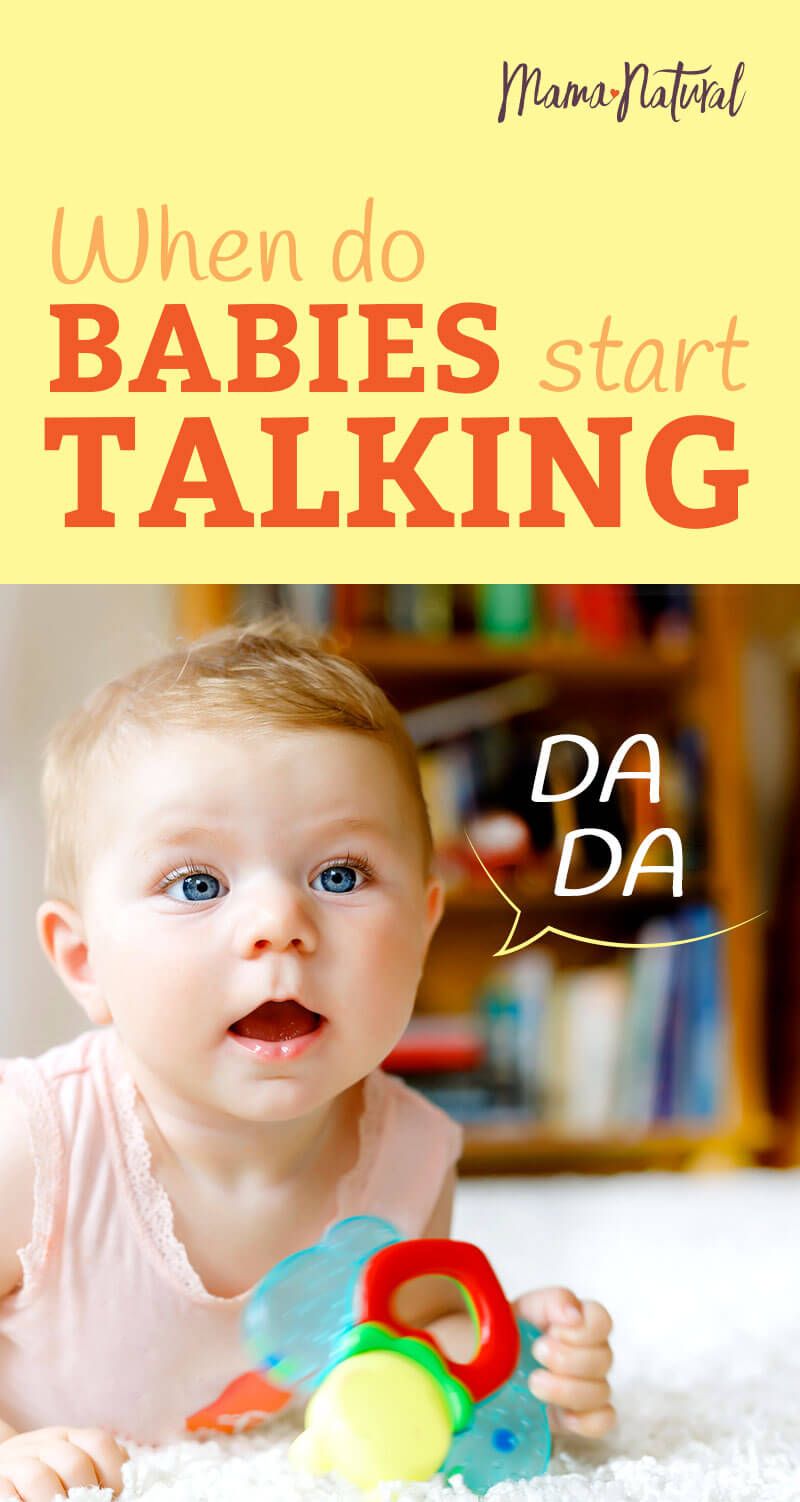
 The habit appears at an early age and sometimes even before birth. The baby feels secure while suckling, especially when he is hungry, nervous, sleepy, or when he is punished or separated from his parents. This is a normal reflex and usually stops by the 2nd year of a child's life. Thumb sucking relaxes, making it easier to fall asleep. Therefore, young children often suck their thumb in the evenings or when they are tired.
The habit appears at an early age and sometimes even before birth. The baby feels secure while suckling, especially when he is hungry, nervous, sleepy, or when he is punished or separated from his parents. This is a normal reflex and usually stops by the 2nd year of a child's life. Thumb sucking relaxes, making it easier to fall asleep. Therefore, young children often suck their thumb in the evenings or when they are tired. 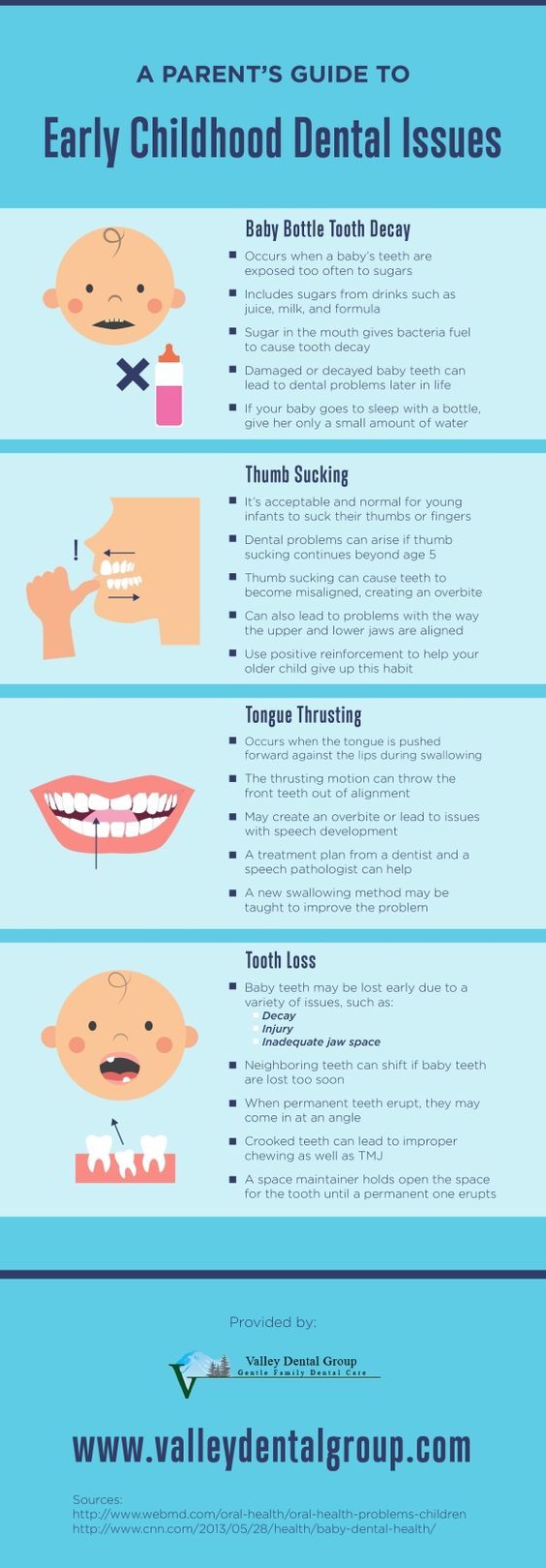
 By school age, sucking almost always stops, as children are in contact with classmates who negatively perceive this habit. A child with a suckling habit may have difficulty making friends.
By school age, sucking almost always stops, as children are in contact with classmates who negatively perceive this habit. A child with a suckling habit may have difficulty making friends. 
